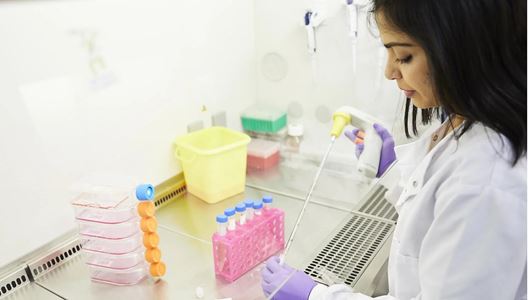
Oxford Gene Technology (OGT), a molecular genetics company who manufacture custom NGS cancer panels and sequencing reagents, used Horizon's formalin compromised DNA (fcDNA) reference standards to validate their SureSeq assay technology.
In oncology, patient tissue is stored as formalin fixed paraffin embedded (FFPE) blocks. The formalin fixation process presents challenges to sequencing labs, including:
- DNA damage
- Increase in the NGS assay DNA input requirements
- Decrease in sequencing quality
To address these issues, Horizon's fcDNA reference standards were used to mimic formalin treated samples and help validate challenging FFPE NGS workflows and assays.
OGT used Horizon's mild, moderate and severe fcDNA reference standards to demonstrate the effectiveness of their hybridization-based enrichment system and FFPE DNA Repair Mix to improve sequencing quality of degraded formalin treated DNA samples.
The results show that treating degraded samples with a DNA repair step improves:
- library yield
- mean target coverage
- total number of reads
This allows NGS labs to obtain higher quality and more reliable variant calling results from lower amounts of degraded DNA (down to 10ng input).
In addition, Horizon's fcDNA reference standard demonstrated that using OGT's DNA repair mix and their custom NGS panel (using SureSeq hybridization-based enrichment) allowed 99.6% of the expected variants to be detected, with 91.5% of the variants lying within 5% of the expected variant allele frequency.
This case study demonstrates how Horizons cell line-derived reference standards, in commutable formats similar to real patient samples, can be used to validate new NGS assay technology in challenging areas such as FFPE NGS.
